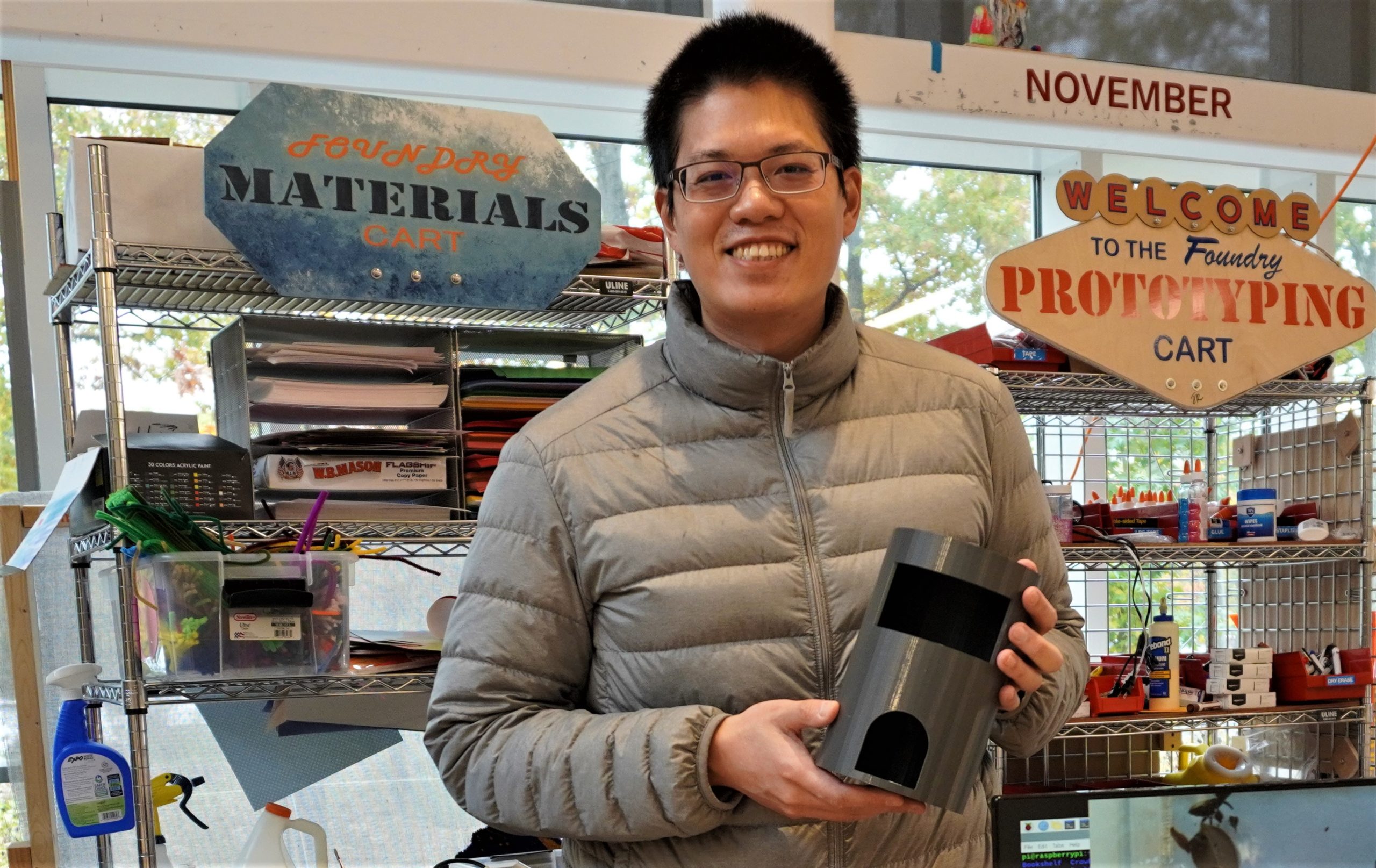WELLESLEY – Richard Chen has a passion for getting rid of pests. And not just any kind of pests like ants or cockroaches. He has a fever to eliminate invasive species, particularly the Apple Snail from Taiwan.
Chen recently realized his passion for battling such pests is deeply rooted in early childhood pain. Born in Lowell, Massachusetts, his family moved back to their native Taiwan when he was only one years old. Unfortunately, his parents divorced during that time and Chen said he began to feel disconnected and neglected. To cope, as young as five, he spent a lot of alone time in the fields of his family’s rice farm.
“When I was young my parents got divorced very early, so basically I spent lots of my childhood in the farm land,” Chen said as he described how his parents seemed emotionally detached from him. “You know, I was not really happy in my childhood without feeling cared for by my parents. So, it’s very sad.”
To pass the time, the five-year-old Chen decided to rid the rice farm of the Apple Snail by squishing as many as he could find. “They were destroying the crops.”
It is important to note that these small shelled gastropods, also known by their scientific name as Pomacea Canaliculata, were introduced in Taiwan in the 1980s to start an escargot industry. It was thought that such food culture could provide valuable proteins for farmers, who primarily lived on a rice diet.
However, the imported snails transferred a parasite called Angiostrongylus cantonensis (rat lungworm), which can infect humans if they were not properly cooked. Instead of becoming a valuable food source, the snails and became a serious threat to rice production and the native ecosystems.
Now an adult, Chen wanted to direct his tremendous desire to terminate invasive species toward a new business venture he calls Barn Owl Technologies. Instead of simply implementing the squish method he used as a child, Chen is taking his knowledge as a software developer to help farmers reduce their use of harmful pesticides through alternative solutions powered by IoT. Engaging trending technology, Barn Owl Technology provides a solution to terminate pests in the farmland without using pesticides which threaten and kill all species in farmland.
“The purpose of the company is to try to reduce the usage of pesticides, in order to improve the whole ecosystem,” Chen said, who’s company recently was accepted as a cohort member of StartUp Worcester, which encourages and nurtures new businesses in the Worcester area. “The number of pesticides in the average American body is 29 percent, according to the Centers for Disease Control. Farmers tend to use pesticides when maybe they do not need to. It’s difficult to know when or where farmers should use them, so they use them when they may not need to.”
Chen has developed a “gadget” to help farmers find pest control through alternative solutions. He said the IoT enables farmers to analyze and act on data collected on the possible pest population which will allow them to make smart decisions in real-time about the use of pesticides, i.e. whether there’s a pest problem, if so how much pesticides are needed. With this timely and relevant insight into the pest population, farmers can avoid spending money on expensive organic pesticides and they have a better chance to reduce the number of pesticides consumed by the general public. The data can also help farmers learn which pests have become resistant to certain pesticides as well.
“I wanted to do something about the pesticides being absorbed in the body, but also to help farmers get rid of their pests,” Chen said. “We built a gadget that can attract insects. The machine tells how many pests are in the area then we can decide whether the pest population needs to be controlled or not. It’s like a watchdog system for the pests.”
Chen said Barn Owl provides a decision-making tool for farm owners to manage their farms more efficiently by reducing pesticides, helping the environment, and improving the rate of crop yields.
“The pest population is one data we will provide,” he said. “We will also provide the humidity and temperature data and we will basically do data projection … Farmers can use these tools and they don’t need to hire someone like a person to scout the farm. That can be costly if they have a hundred-acre farm. That’s labor intensive and they won’t need to hire more people to do the data collecting.”
In a nutshell, the Barn Owl IoT system will track pest population in real-time with the elimination of possible invasive pests as a positive by-product. The Barn Owl gadget functions as follows: acquiring real-time pest population data, monitors humidity and temperature; it is a warning system for pest outbreaks in different areas of the farm.
Currently, Chen’s “gadget” is still in the development phase. From now until the end of the year, Chen and his colleagues look to complete the mechanical design of his product and finish the integration of the IoT software. He also looks to finish a prototype during that same time period. By May, the company plans to conduct field-trials of the product to work out any possible “bugs” with the software.
As a new member of the StartUp Worcester cohort, Chen said he is grateful for the business opportunities the program provides. “It’s a pretty nice program, ” he said. “It did provide some connections and networking. It helps so you can reach out to plenty of resources, especially in my stage. Once the prototype is ready, I think I can go through the resource from the Worcester Chamber of Commerce … I can go through the Chamber to reach some local farmers. ”
Chen said he is enthusiastic about the future of his company. “There’s a future for this technology and we can help the farmers,” he said with a smile. “We can also terminate pests in the process.”
For more information about Barn Owl Technologies, contact Chen at rchen6@babson.edu or visit the company website at https://www.barnowltechnology.com.







Leave A Comment